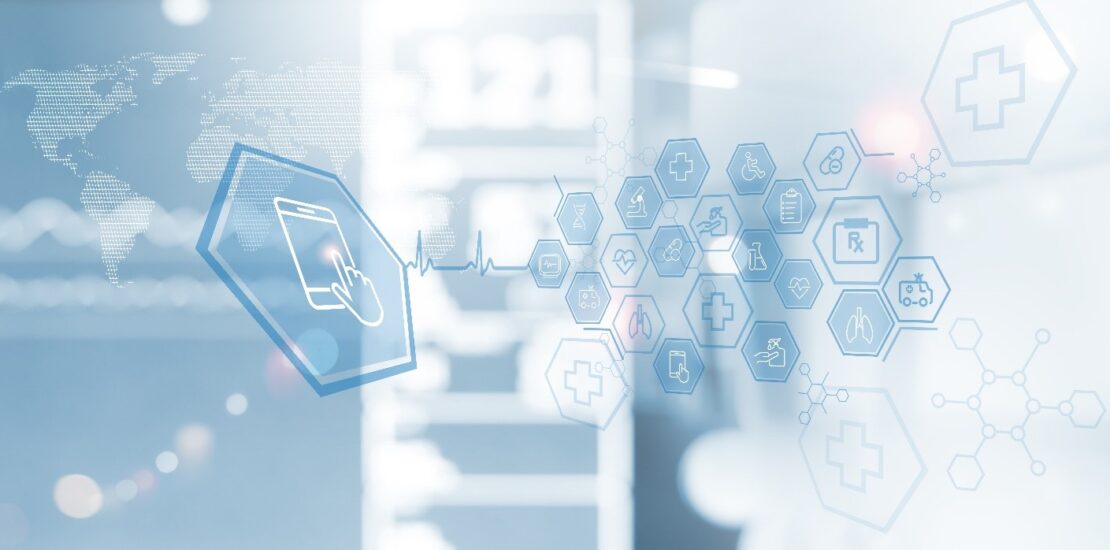- February 15, 2024
- Posted by: GMAS Team
- Category: Blog

The landscape of healthcare is undergoing a profound transformation, driven by technological advancements and a growing emphasis on patient-centric care. One of the most significant shifts in recent years has been the rise of telehealth, a paradigm that is reshaping how healthcare services are delivered. As we delve into the future, it becomes increasingly evident that it is not just a temporary response to global challenges but a permanent evolution with data-driven healthcare at its core.
- Healthcare Redefined: A Data-Driven Revolution
Once a niche concept, it has evolved into a comprehensive ecosystem that leverages data-driven insights to enhance patient care. The convergence of telecommunication technologies and healthcare has paved the way for virtual consultations, remote monitoring, and personalized health interventions. Data-driven telehealth not only facilitates convenient access to healthcare services but also empowers both patients and healthcare providers with actionable information.
- Remote Patient Monitoring: Real-Time Insights for Better Health Outcomes
In the future, remote patient monitoring will play a pivotal role in preventive healthcare. Wearable devices and connected sensors enable the continuous collection of vital signs and health metrics, providing real-time data to healthcare professionals. From monitoring chronic conditions to tracking overall wellness, data-driven virtual health allows for proactive interventions, reducing the likelihood of complications and hospitalizations.
- Predictive Analytics in Telehealth: Anticipating Healthcare Needs
The integration of predictive analytics into virtual health platforms is poised to revolutionize how healthcare is delivered. By analyzing historical patient data, machine learning algorithms can predict potential health issues, allowing for early intervention and personalized preventive measures. This not only enhances patient outcomes but also contributes to the efficient allocation of healthcare resources.
- Telehealth and Big Data: Unleashing the Power of Information
Big Data analytics is a cornerstone of the future of virtual health. The vast amount of health-related data generated through virtual consultations, remote monitoring devices, and patient health records presents an unprecedented opportunity for insights. By harnessing this wealth of information, healthcare providers can identify patterns, trends, and correlations that inform evidence-based decision-making, ultimately leading to more effective and personalized patient care.
- Enhanced Patient Engagement: Informed and Empowered
Data-driven virtual health fosters a new era of patient engagement. Through personalized health portals and mobile applications, patients gain access to their health data, including test results, treatment plans, and lifestyle recommendations. This increased transparency not only enhances patient-provider communication but also empowers individuals to actively participate in their healthcare journey, leading to better adherence to treatment plans and healthier lifestyle choices.
- Challenges and Solutions: Navigating the Data-Driven Landscape
While the future of virtual health appears promising, it is not without its challenges. Data security and privacy concerns, interoperability issues, and the need for standardized data formats are critical considerations. However, ongoing advancements in cybersecurity measures, collaborative efforts to establish interoperability standards, and regulatory frameworks are actively addressing these challenges, paving the way for a more seamless and secure data-driven telehealth landscape.

- Telehealth Beyond Borders: Bridging Gaps in Healthcare Access
Data-driven virtual health has the potential to bridge healthcare gaps, especially in underserved or remote areas. Virtual consultations, coupled with mobile health units equipped with diagnostic tools, can extend healthcare services to regions where traditional infrastructure is limited. This not only improves access to medical expertise but also facilitates early diagnosis and intervention, contributing to better overall public health outcomes.

- The Role of Artificial Intelligence (AI): Personalized and Efficient Healthcare
Artificial Intelligence (AI) is set to be a driving force in data-driven virtual health. From chatbots providing initial assessments to AI-powered diagnostics, the integration of intelligent algorithms streamlines healthcare processes. This not only reduces the burden on healthcare providers but also enhances the accuracy and efficiency of medical decision-making, ultimately benefiting patients through quicker and more precise interventions.
- Economics: Cost-Effective and Sustainable Healthcare
As the world grapples with rising healthcare costs, data-driven virtual health emerges as a cost-effective solution. By reducing the need for physical infrastructure, streamlining administrative processes, and preventing avoidable hospital admissions through proactive care, it has the potential to lower overall healthcare expenditures. This economic sustainability is a crucial factor in ensuring the widespread adoption and longevity of telehealth initiatives.
- The Human Touch: Balancing Technology and Patient-Centric Care
Amid the technological strides in data-driven virtual health, it’s essential to maintain a balance between technology and the human touch in healthcare. While virtual consultations and remote monitoring offer convenience, the importance of empathy, emotional support, and the patient-provider relationship cannot be understated. The future of telehealth lies in seamlessly integrating technology to augment, not replace, the personalized care that defines the essence of healthcare.
The future of telehealth is an exciting journey into a healthcare landscape where data-driven insights empower both patients and healthcare providers. Remote monitoring, predictive analytics, big data, and artificial intelligence are not just buzzwords but tools that have the potential to revolutionize how we approach healthcare. As we navigate this future, the emphasis must remain on harnessing the power of data to enhance patient outcomes, improve access to care, and create a healthcare ecosystem that is both technologically advanced and deeply human-centric. With data-driven healthcare at our fingertips, it promises a new era of proactive, personalized, and accessible healthcare for all.
